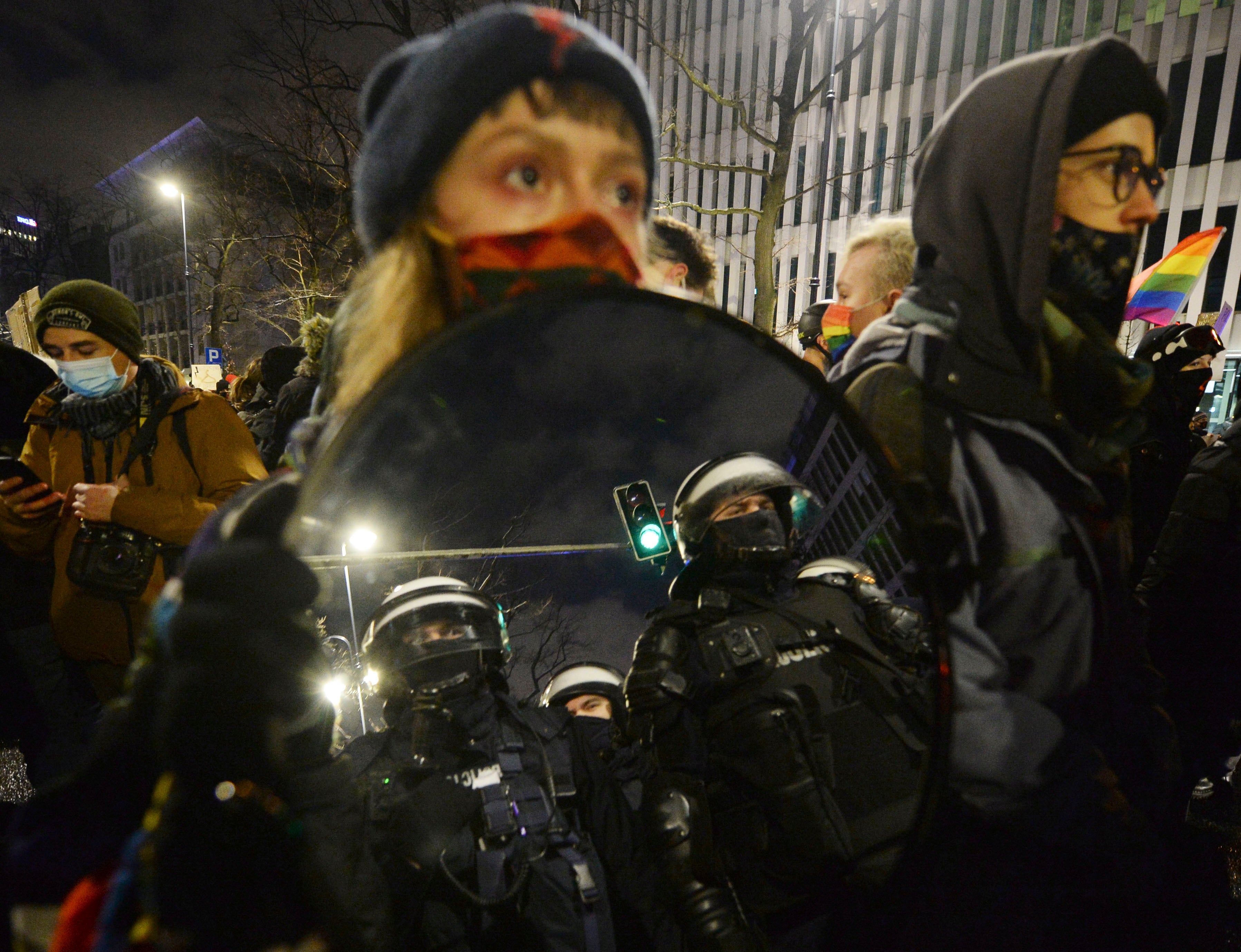Poles plan more protests over abortion law after detentions
Poles are gearing up for a third night of street protests against a near-total abortion ban as several protesters remained in police custody after being detained the evening before

Your support helps us to tell the story
From reproductive rights to climate change to Big Tech, The Independent is on the ground when the story is developing. Whether it's investigating the financials of Elon Musk's pro-Trump PAC or producing our latest documentary, 'The A Word', which shines a light on the American women fighting for reproductive rights, we know how important it is to parse out the facts from the messaging.
At such a critical moment in US history, we need reporters on the ground. Your donation allows us to keep sending journalists to speak to both sides of the story.
The Independent is trusted by Americans across the entire political spectrum. And unlike many other quality news outlets, we choose not to lock Americans out of our reporting and analysis with paywalls. We believe quality journalism should be available to everyone, paid for by those who can afford it.
Your support makes all the difference.Poles are gearing up for a third night of street protests against a near-total abortion ban as several protesters remained in police custody Friday after being detained the evening before.
Among those detained is Klementyna Suchanow, an author and activist who is one of the leaders of Polish Women's Strike, a movement that has organized mass protests against the restrictive abortion ruling.
Women's Strike said Friday that 14 people were detained Thursday, on the second night of protests — which were held despite a prohibition on public gatherings due to the COVID-19 pandemic.
Warsaw police said they had detained several people for entering the grounds of the Constitutional Tribunal in Warsaw.
Poland’s constitutional court ruled in October to ban abortions in cases of fetuses with fatal abnormalities. The ruling finally became law on Wednesday, triggering the protests.
Irene Donadio, a leading strategist with International Planned Parenthood Federation, an international group promoting reproductive health and choice, said her organization is appalled that such a restrictive law could be imposed in a European Union member-state.
She called it a “tragedy” not only for women but for rule of law more broadly, noting that the erosion of judicial independence had paved the way to the top court's ruling and that the detention of activists was also unlawful.
She accused authorities of trying to “intimidate and terrify” the protesters.
Women's Strike said that Suchanow is due to be released on Saturday after she is formally charged. It said it considers her detention to be “political harassment,” accusing police of using “excessive force” against her and of depriving her initially of access to her lawyer.
In a more than 200-page ruling, the constitutional court argued that allowing abortion when there are congenital defects is unconstitutional because the Polish Constitution protects human life.
The court is made up mostly of appointees of the ruling conservative party, Law and Justice, who ruled on a motion brought by party lawmakers.
The ruling would ban abortion of fetus with a range of abnormalities, from Down syndrome to fatal abnormalities.
The only remaining legal justifications for abortion under Polish law are if the woman’s life or health is at risk or if a pregnancy results from rape or incest. To date, about 98% of all legal abortions in the country — of which there were 1,110 in 2019 — were performed on the grounds of fetal malformations.